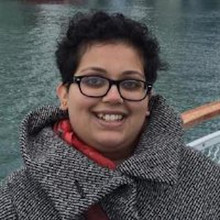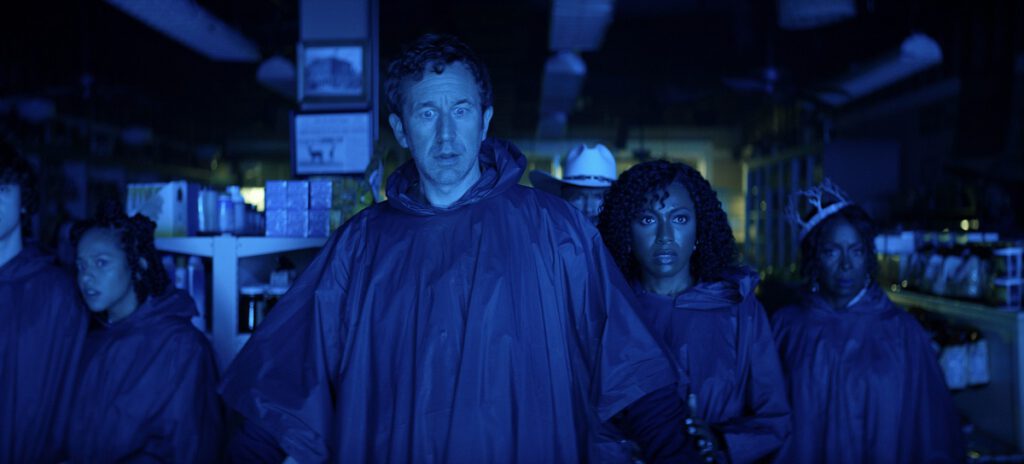Apple TV+ is, possibly unintentionally, developing a house style. The streaming service’s comedy series largely traffic in a near-universal fashion: Instagram-ready interiors, gleaming lighting, writing/characters that are desperate for audience approval. Their dramas—with the exception of the near-flawless “Severance”—are no different. “Shining Girls,” “Suspicion,” and “Defending Jacob” would have been better off as mid-budget movies because there simply isn’t enough meat on their bones to justify 8-12 episodes. “The Big Door Prize,” Apple TV’s latest release, attempts to marry drama and comedy and fails at both, all while featuring Pinterest-perfect production design and writing that smarts of the Hallmark Channel.
Adapted from the M.O. Walsh novel of the same name by a team that includes David West Read (“Schitt’s Creek”), “The Big Door Prize” features an ensemble cast led by Chris O’Dowd as Dusty, a high school European history teacher (and expert whistler) whom we meet on his 40th birthday. After celebrating forty separate goofy gifts at breakfast with his wife Cass (Gabrielle Dennis) and their daughter Trina (Djouliet Amara), Dusty happily rides his new motorized scooter to work. His giddiness is dampened during a stop at the local general store: a deep blue machine, emblazoned with a luminescent butterfly, called the Morpho, has appeared overnight inside the store. No one knows how it got there. Once you feed it your fingerprints and Social Security number, it prints out a tidy blue card that reveals to you your full potential. The results are often unpleasant: one character’s card reads “liar,” while the card belonging to a housewife, who makes her own T-shirts and tchotchkes, reads “royalty.” Dusty’s card sends him down a spiral of intense self-doubt: “teacher/whistler.”

He’s not alone in his bewilderment: the Morpho card belonging to Jacob (Sammy Fourlas)–Dusty’s withdrawn, awkward student, who is grieving the death of his lionized twin brother in a recent car accident–reads “hero,” which baffles him. Jacob’s father Beau (Aaron Roman Weiner), who possesses all the hallmarks of toxic masculinity, is alarmingly inspired by his card, which reads “sheriff.” Father Reuben (Damon Gupton) is disappointed by his card, which says “father.” Pretty much the only person happy with their card is Giorgio (Josh Segarra, having a damn good time in the role), the bombastic former professional hockey player and present Italian restaurant owner, whose card reads “superstar.” Much to Dusty’s dismay, soon all anyone can talk about in Deerfield is the blue Morpho cards, what they mean, what they should/could mean, and whether any of this matters.
Renowned voice-over actor Jim Meskimen, as O’Dowd’s father Cary, gets the biggest laughs as an elderly man who decides to chase the dream as printed on his Morpho card: “male model.” Gupton’s chemistry with Ally Maki, who plays Hana the bartender, is sweet and warm, creating layers of connection in a town that is rapidly devolving into squabbling and rancor. After all, humanity has turned to god and drink during turmoil since the dawn of civilization. What makes Maki and Gupton’s dynamic so charming is that Hana, in Father Reuben’s own words, is the “one person in Deerfield who doesn’t need anything from him.” The two actors deserve a different and better series. O’Dowd, too, is having a ball, able to balance the depths of cosmic disappointment and the comedy of daily misadventures. He’s like Ireland’s answer to Jason Bateman, able to scale pain and laughter with ease; the quality of the writing is almost irrelevant in his scenes because of his ability to sell Dusty’s reality. There’s an especially hilarious sequence in which he performs Usher’s “Yeah!” on his least-liked birthday gift from Cass: a theremin.

The writing for Beau, Cass, and Cass’s mother Izzy (Crystal R. Fox) is perhaps the most muddled of all. It’s as though the writers threw narrative spaghetti to the wall to check what stuck. Dennis is a capable actress but her arc is a mess; Izzy’s characterization runs back and forth from warmth to sociopathy.
There is a better version of this series somewhere, one that honestly and engagingly interrogates these ideas. Is your “potential” the same as “your future”? Is what you want from life enough? Should you modify your hopes and dreams in order to be a different, better version of yourself? Should the results of an arcade-style fortune-telling machine inspire you to change your life, or is it just hogwash? “Nick of Time,” a second season episode of Rod Serling’s “The Twilight Zone,” handled questions about fate and destiny with surefooted writing and captivating performances by William Shatner and Patricia Breslin. But there are no hints of Richard Matheson’s masterful writing or Richard L. Bare’s directorial prowess here. Episodes 6 and 7, in particular, are such a hodgepodge of subplots and narrative left turns that they barely register as connected to the overall story. The writers’ room here wanted to do something akin to a sci-fi riff on “Short Cuts,” but wound up with a vaguely Serling-esque take on “Dan in Real Life.” The result is the TV equivalent of a sandwich from a fast-casual chain: edible, sure, but you will feel neither transformed nor transported during or afterward.
Entire season was screened for review.












